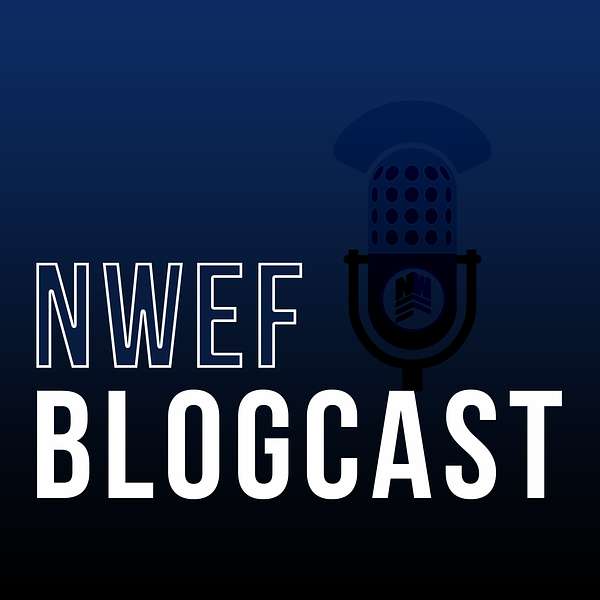
NWEF Blogcast
NWEF Blogcast
California Bill Targets Parents for Speaking Up At Board Meetings and “Harassing” School Officials
Parental rights in California have gone downhill in recent years, and now parents may face new challenges as they fight for their children’s safety in school board meetings. In this episode, we’ll be discussing a bill that recently came before the California senate which targets these concerned parents and may make it even more difficult to question schools’ authority.
LINK TO PUBLISHED ARTICLE:https://noahwebstereducationalfoundation.org/ca-bill-targets-parents-for-speaking-up-at-board-meetings/
GET CONNECTED WITH NWEF
Like us on Facebook: https://www.facebook.com/nwef.org/
Follow us on Twitter: https://twitter.com/NWEF_org
Follow us on Instagram:https://www.instagram.com/nwef_org/
Subscribe on YouTube: https://www.youtube.com/channel/UCtdHayyOqPftVoiGEqxYdsg
To hear more from NWEF, subscribe to our other podcast: https://www.buzzsprout.com/1929154
– What is the Noah Webster Educational Foundation? –
Noah Webster Educational Foundation collaborates with individuals and organizations to tell the story of America’s education and culture; discover foundational principles that improve it; and advance practice and policy to change it.
Website: https://www.nwef.org
Reach out: info@nwef.org
More California parents are speaking up at school board meetings—but if a new state bill passes, those same parents could face criminal charges for allegedly harassing school officials.
The bill, SB 596, would make it so that any parent, legal guardian, or concerned citizen who causes “substantial disorder” to a school event, whether on or off-campus, to be guilty of a misdemeanor. That would include disturbances at school board meetings. Violators of the legislation could be subjected to a fine of up to $1000 and/or imprisonment.
The bill is designed to protect school employees, particularly those who teach about LGBTQ+ practices. The new legislation builds on existing California law prohibiting parents from disrupting in-school activities. The scope of this change now extends to after-school events where school employees are present, such as board meetings. Additionally, the definition of “school employee” has grown to encompass teachers, administrators, local or state board members, and even charter school employees.
California State Senator Anthony Portantino introduced the bill back in February, emphasizing in a press release that there have been several challenges to school staff teaching about LGBTQ+ topics. In one incident, a teacher was moved to another elementary school after being threatened for teaching about LGBTQ+ Pride Month. The press release also highlighted that these threats extend beyond school hours, affecting staff during off-campus activities and even through social media.
“No one should be threatened or harassed for providing academic instruction in accordance with California state law,” stated Senator Portantino.
California teacher Patrick Davarhanian echoed Portantino’s points, saying there has been a concerted effort by “radical extremists” to intimidate teachers who want to teach accurate historical information. Senator Portantino reiterated that the bill provides the necessary protection for school staff.
Despite criticism, Portantino asserted that the bill does not infringe on parental rights. Still, opponents raise the alarm that the bill’s language is too vague. For instance, “substantial disorder”—the alleged misdemeanor parents would be accused of—is not defined in the bill. Similarly, the concept of “harassment” could be open to interpretation, as it relies on the affected person’s experience of “emotional distress.”
Jim Manley with the Pacific Legal Institute noted that it’s normal for government institutions to set conduct standards. But, with this bill’s language, citizens “saying two things that the school official finds harassing could be enough to qualify there,” he explained to The Daily Signal. “An email that [causes an employee to suffer mentally] would count as harassment under this standard.”
Mari Barke with California Policy Center believes such a bill ultimately hurts students.
“The parents are being targeted but the damage is to the child or student,” Barke told The Daily Caller. “[This California bill] is attempting to silence free speech and could be used against parents very arbitrarily if they question or vocalize concern or opposition to offensive or divisive curricula, content or behavior.”
Matt McReynolds, also with the Pacific Justice Institute, noted how California is targeting parents while focusing on decriminalization by letting “thousands of dangerous offenders back into our communities.” McReynolds pointed to California’s past efforts to stifle parents, such as with AB 1078.
Furthermore, parents in California could lose custody of their children if they don’t affirm their child’s gender identity. Governor Gavin Newsom has made California a “sanctuary state” for “gender-affirming care.”